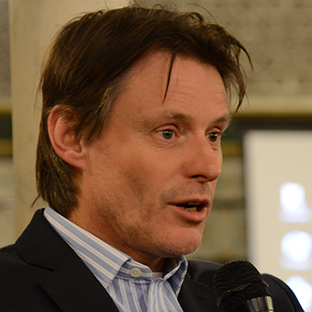One of the phrases dominating discussions of how organisations respond to the Covid-19 public health crisis is “building back better”. It is everyone’s slogan.
It is as straightforward an idea to endorse as it is the question 'are you in favour of world peace?'. Few are consciously campaigning for the restoration and preservation of the dysfunctional, unfair and oppressive.
The opportunity of our time is not about restarting paused systems hoping, with tweaks, they might work a little bit better for a few more people; rather it is to assume a blank canvas imagining how we make designs more inclusive, more friendly and more sustainable and then with that knowledge to paint a fresh picture.
The role of heritage in building back better
The British Council, with partners, has been exploring the concept of Cultural Heritage for Inclusive Growth, most recently working on a pilot programme in Colombia, Kenya and Vietnam. One of those partners, the RSA, has produced an excellent report that points to the role that heritage could have in ‘building back’ more inclusive local economies, communities and identities.
The report offers case studies from across the UK that are exemplars of cultural heritage programmes affecting “locally-led place-specific change”. That resonates with the work of our pilot programme and its exploration of how heritage can enhance and give value to lives. Just as resonant is the sense of liberation that comes with tearing up the plan and starting with a clean blank page.
My background is neither in heritage nor academia so reading the report and following the work of the pilot programme there has been a degree of detachment. One of the areas that has fascinated me is the weighting given to different forms of expertise.
Understanding the historical/anthropological/archaeological significance of cultural heritage carries huge weight, and –rightly so.
However, living with or being a part of that cultural heritage - understanding where it fits with your story and your daily reality - should also count in the same way as valuable expertise. British Council is a cultural relations organisation. It is our business to build trust and understanding between peoples, communities, countries.
Appreciation of the cultural context and of relationships and connections is at the heart of our work. People who live with and are part of a culture’s heritage should be recognised and respected as cultural heritage “experts” with equal weight given to their expertise.
People-centred cultural heritage
In the report, and at the heart of our pilot programme, is a ‘people-centred’ approach to cultural heritage. We should understand that approach as a call for a new order, a redesign, for the pencil to be poised above a blank page.
Being ‘people-centred’ doesn’t mean finding ways of educating more people to appreciate the things that administrations think they should venerate. It means being inclusive and respectful of those whose heritage we engage with - discovering aspects of a culture that people cherish, which gives value to their lives and that they wish to pass on to future generations.
The commitment to a better future requires acknowledgement of the prejudices that have shaped the status quo. One of the more eccentric current obsessions is to contain activity within a distinct structure, e.g. heritage needs to be preserved in aspic, boxed up and carefully sealed to ensure that it is not contaminated with economics or development.
The best way of protecting heritage isn't locking it away
The RSA report acknowledges the need to see cultural heritage as part of an ecosystem. That, to me, suggests the breaking of seals and the opening of boxes. It also requires challenge and examination of accepted truths.
For example, that the best way of protecting heritage is to lock it away in a controlled and managed environment for viewing by controlled access only; or that mass tourism provides the best economic model for heritage protection – to quote the cultural economics expert Professor Piere Luigi Sacco:
“the sad decadence of the heritage cities that have accepted to be defined by tourists and their ritualized past, giving up an opportunity to further develop their own cultural discourse”
Now, more than ever, it is important not to dismiss heritage as a way of asserting a narrow view of history or pointing up key figures and moments that sustain inaccurate and outdated narratives.
Cultural Heritage can help us explore and celebrate diverse and complicated pasts and it can also inform how we structure a better future.
Stephen Stenning is Head of Arts and Society at the British Council.
Related articles
-
Changing how we see heritage can help us build back better
Becca Antink
How the heritage sector is making a difference in local communities.


Be the first to write a comment
Comments
Please login to post a comment or reply
Don't have an account? Click here to register.